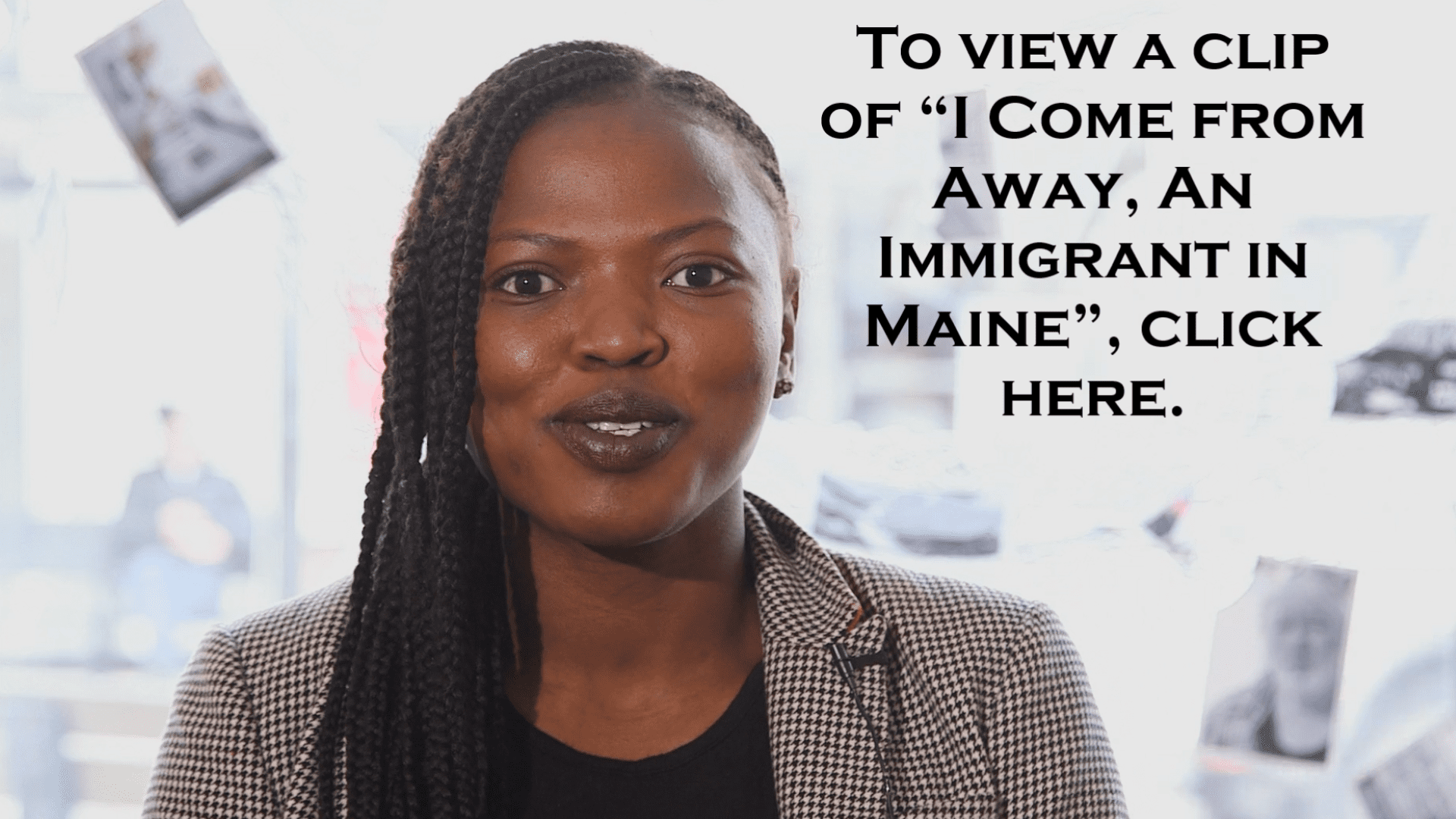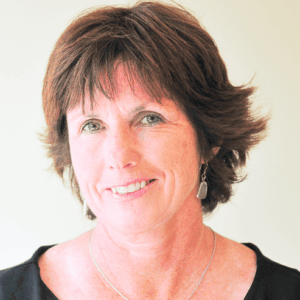Nyamuon “Moon” Nguany Machar first heard the word on a Portland playground.
Children in Kennedy Park, where Moon and her family lived, called her “nigger,” a word she did not understand.
“I did not hear that word where I was from,” said Moon.
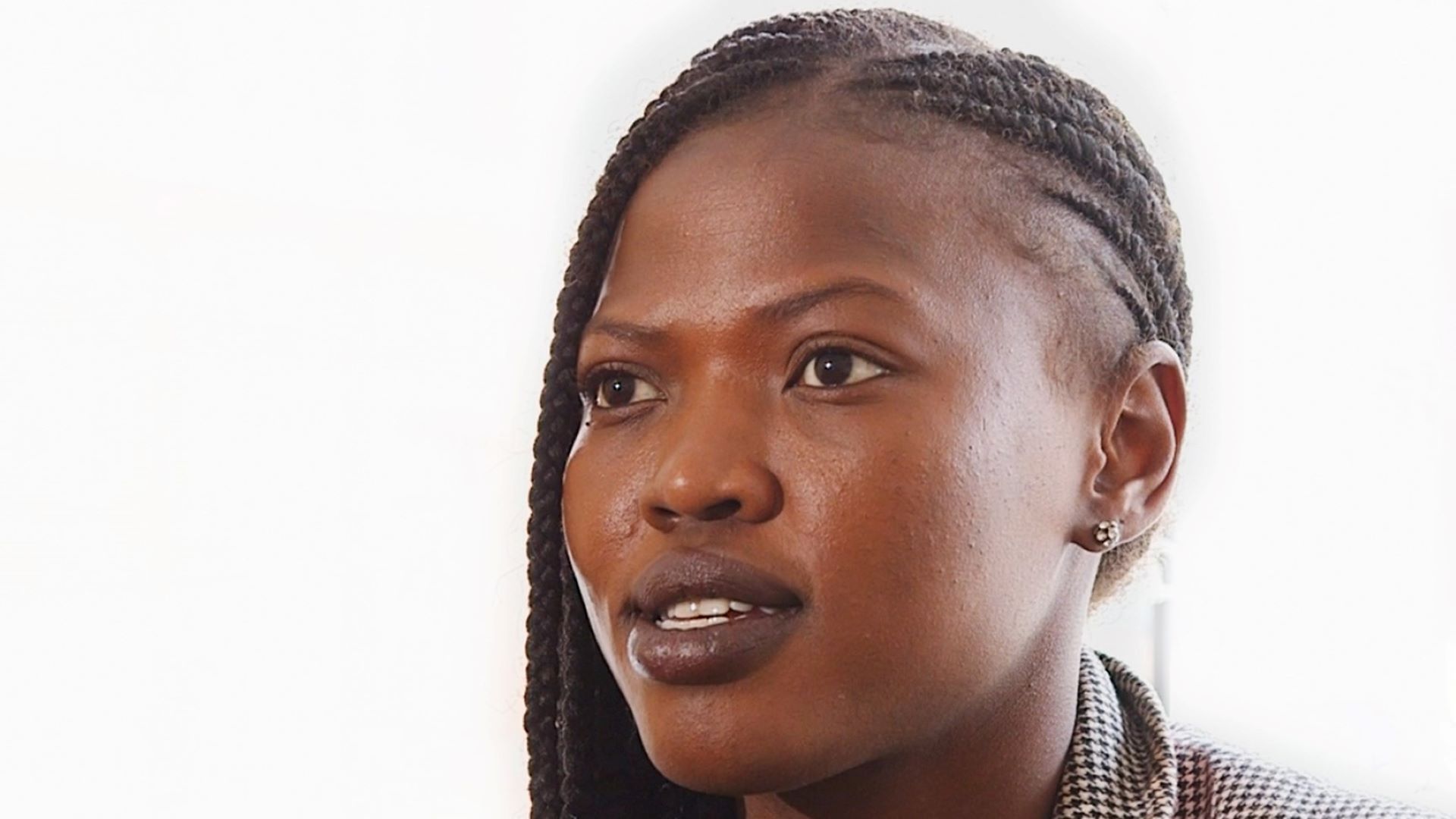
Moon was 5 years old when her family emigrated from Ethiopia to Maine, one of the whitest states in the country. The young girl soon learned that African Americans grappled with many race issues that were foreign to immigrants.
“I started to understand that there were much deeper issues here with the Black community, and there were layers to the Black experience that I really needed to open my eyes to,” she said.
Over the next 25 years, Machar, who calls herself “Moon,” would evolve into a powerful advocate for Portland’s immigrants. She would become a voice and mentor for people seeking asylum, and for children with traumas and mental health illnesses. And her face, framed by dark braids and illuminated with a broad smile, would be painted on an East Bayside mural, as a beacon for hope and tolerance in the neighborhood where she first heard racial slurs as a child.
A self-described poet, activist, dreamer and mother, Moon’s story is also now the focus of a documentary by an award-winning filmmaker.
Charles Stuart, who has won five national and three regional Emmys, was struck by Moon’s passion to help other immigrants, and educate the community about their trauma and struggles while seeking a new life in a predominantly white state.
“Moon is extremely charismatic, and I wanted to use filmmaking and her experiences to help white people understand what it’s like to be Black and live in the second-whitest state in the country,” Stuart said.
Stuart has submitted his hour-long film called “I Come from Away, An Immigrant in Maine” to the Camden Film Festival, which will select films in August for its annual fall event.
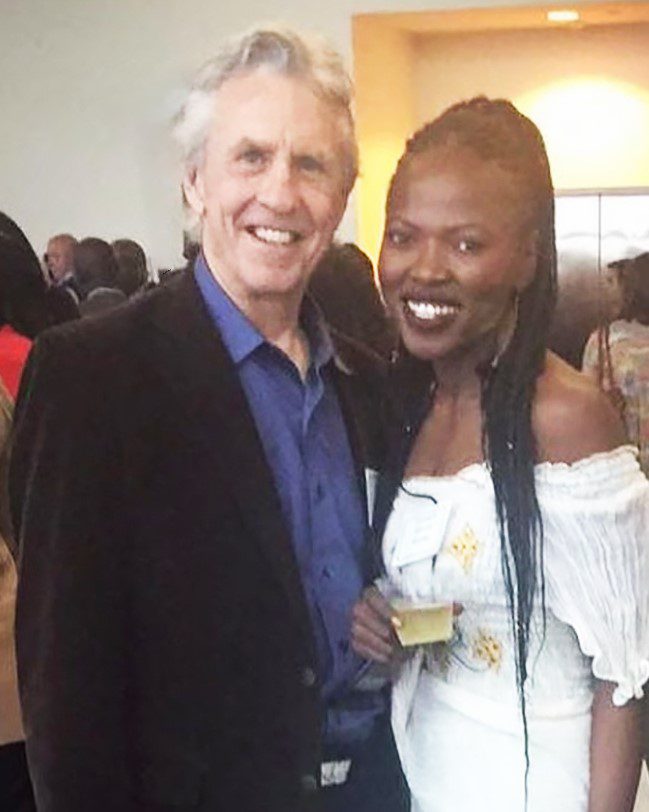
Jennifer Rooks, host of Maine Public Radio’s talk program Maine Calling, has not yet seen the film but is confident it will be compelling. In 2013, Rooks collaborated with Stuart to produce a Maine Public Broadcast documentary, A Matter of Duty, which detailed former Kennebec County Sheriff Randy Liberty’s battle with PTSD and his efforts to help other veterans who struggled with trauma.
“The most important thing to know about Charlie,” said Rooks, “is that he has an incredible depth of energy, enthusiasm and dedication to his topics.”
With a $10,000 grant from Colby College’s Oak Institute for Human Rights and $5,000 from an anonymous donor, Stuart began filming Moon in 2019. After pausing production during the pandemic, he has completed a rough cut of the film that narrates Moon’s journey from a young immigrant to a dynamic activist. It also documents her family’s experience as they sought to build a new life in Portland.
Stuart, who has produced documentaries for CNN and PBS’ Frontline, said Moon never hesitated when he asked to chronicle her experiences.
“It really didn’t take any convincing of Moon,” explained the Nobleboro filmmaker. “She said to me, ‘This will be a complete validation for my family, their journey and their story.’ ”
Several scenes from Stuart’s film are poignant and powerful. In one segment, Moon’s mother Fetelwork sits at her kitchen table talking about the racial slurs she has encountered in Maine. A former United Nations translator, Portland’s foreign culture and community overwhelmed Fetelwork.
“It felt like you don’t know anything. I wished to go back to my country because I feel lonely,” she said.
The mother of five worked at a bakery and at a factory making blankets. At times, she encountered racism and hatred.
“They call me nigger,” Machar said. “I don’t care. So many people tell me, ‘Go back to your country.’ I’m not sad. I’m not mad. I love Portland. I don’t want to go anywhere.”
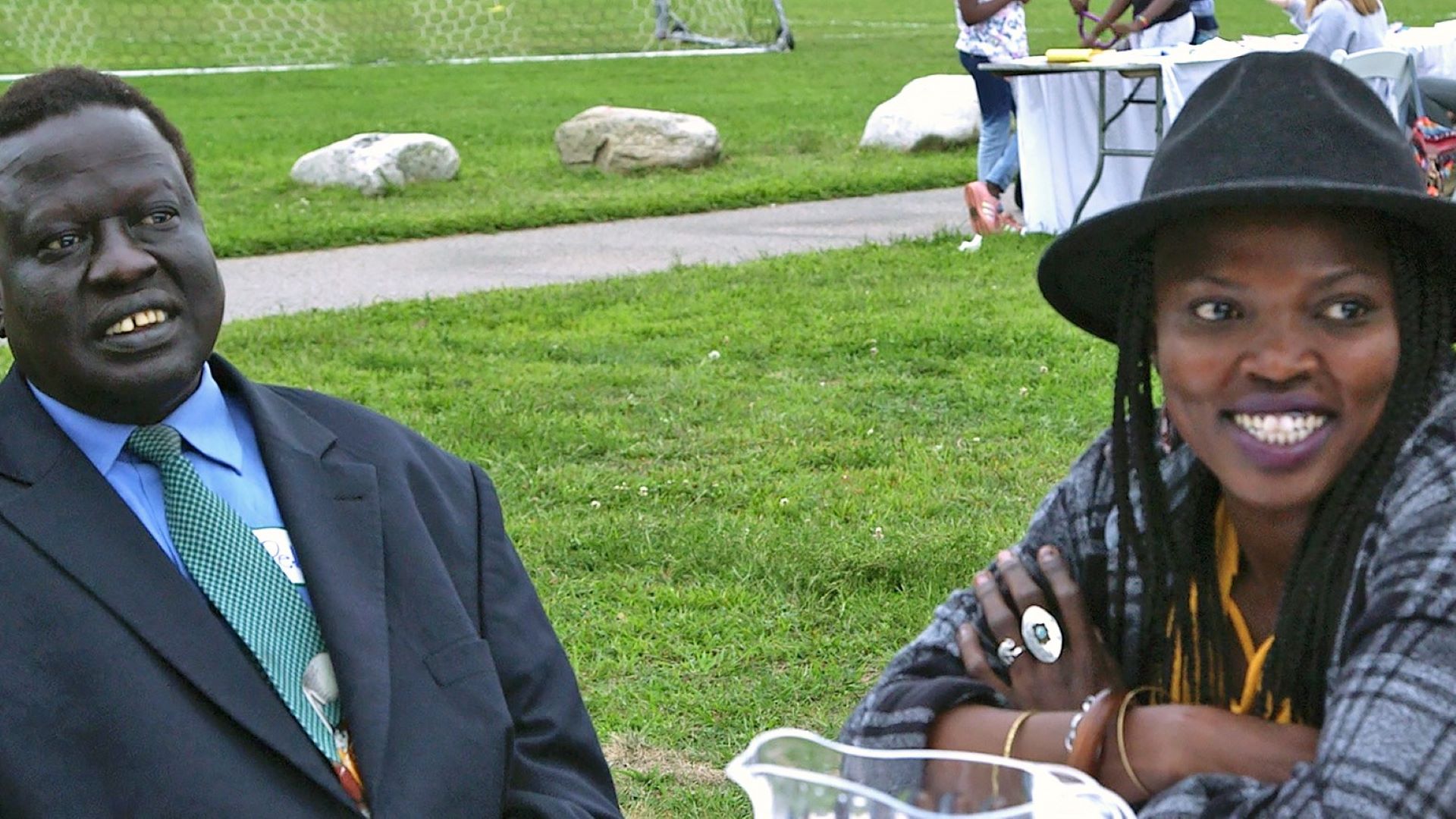
Moon’s father Peter Machar also faced prejudice at the Portland factories where he worked. A child soldier in Sudan, Machar grew up as a warrior in the military, a job considered prestigious, Moon said. He fled his country’s civil war and ended up at a refugee camp in Ethiopia, where he met his future wife.
“Then he comes here, and he has to humble himself and work with people who are very prejudiced to him,” Moon said. “When I asked him why he didn’t retaliate about the people who bullied him, he told me he didn’t want to cause a rift that would take away his ability to provide for his family.”
To maintain his dignity in the community, Machar wears a suit whenever he leaves his home. In Stuart’s film, Machar sports a suit coat, tie, dress shirt and slacks as he cultivates a row of plants in his garden.
“Dad wears a suit when he checks the mail, when he works in the garden and everywhere else he goes,” Moon said. “It’s a way for him to put a little bit of pride back in who he was and hold on to that dignified stance that he knew and remembers.”
As well as the pockets of racism, Moon and her family have experienced overwhelming kindness and acceptance. She is grateful for Catholic Charities, which helped them find housing, and for the Cathedral of the Immaculate Conception parish, which offered support and love.

“We were very warmly received by that parish and by the whole community,” Moon said. “I remember that first Christmas, we had never seen anything like it. Random people and people from the church dropped off gifts. They filled up an entire room. It took us hours to go through them all.”
Moon and her own family’s experiences have fueled her passion to help other immigrants overcome obstacles in Maine. In June 2019, Moon joined other community leaders in assisting hundreds of immigrants from the Democratic Republic of Congo and Angola seeking asylum from civilian massacres, sexual violence, corruption and dire poverty. The story, Stuart said, provided a compelling backdrop as debates over immigration issues continued around the country.
“Busloads, hundreds of asylum seekers arrived with no more than several days notice,” said Stuart. “It was a story with a lot of interesting angles, and I filmed Moon as she was in the middle of it.”
Stuart accompanied Moon to the Portland Expo, the emergency shelter where more than 200 men, women and children slept on cots until they could find housing. He filmed Moon, laughing as she shot a ball into a makeshift hoop – a garbage can – with several young children.
“Here Moon is putting herself in the shoes of these young kids, playing ball with them and talking to them about their hopes and fears,” Stuart said. “She was able to reflect what it was like for her to be there as a young refugee.”
In Stuart’s documentary, Moon also talks to a father, David Zwahila Mota, who speaks about his family’s six-month journey to get to Maine from Africa by walking through Central America.
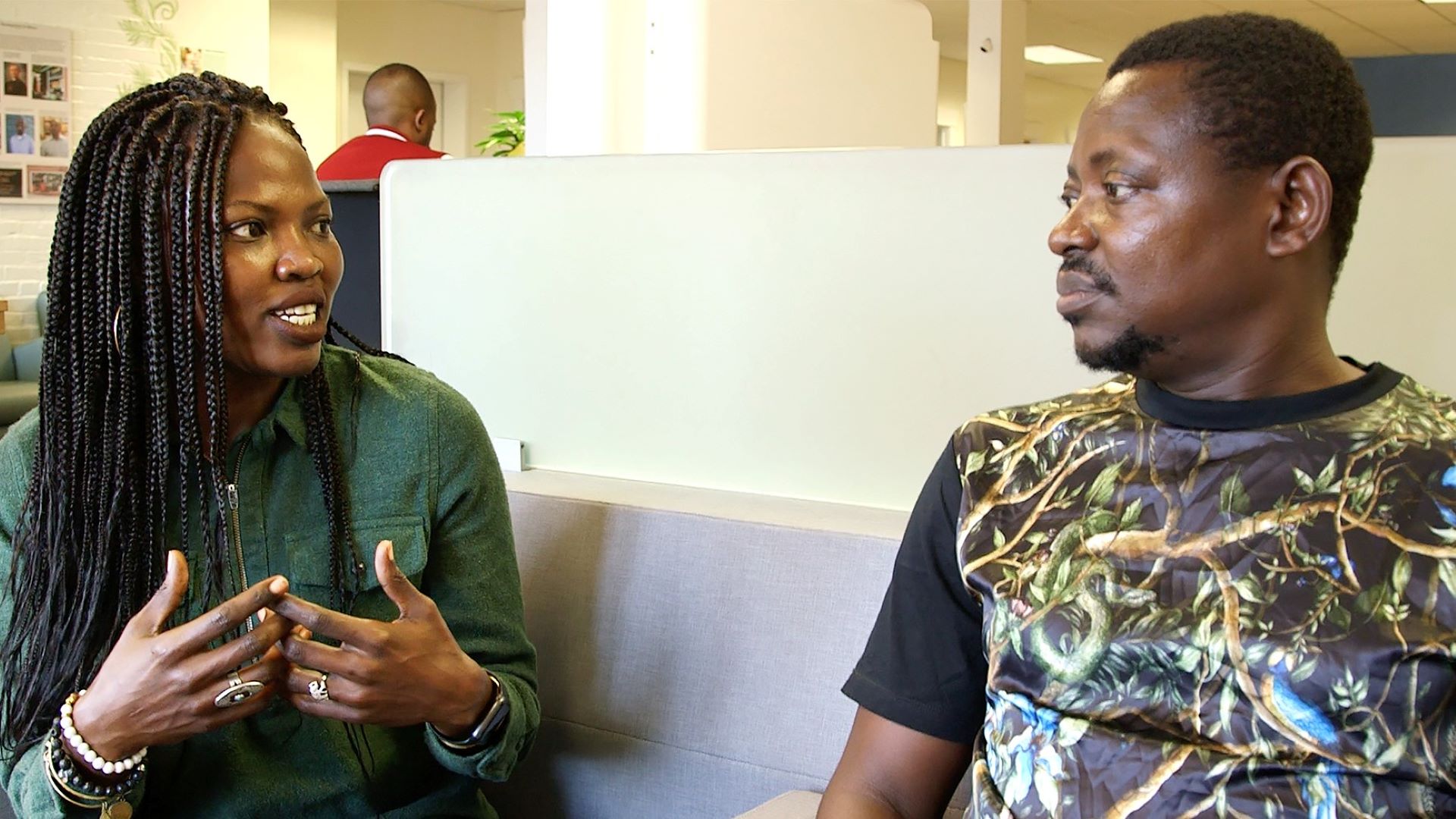
The trip was “filled with horror,” Mota told Moon. His wife, and children ages 3, 8 and 13, encountered dead bodies and gangs demanding money. They threatened to shoot Mota.
“We had nothing,” Mota said.
When he and his family arrived in Portland, they finally felt safe, Mota said.
“I hope in the coming days it will be with great joy that we will have a chance to live together with the people here,” Mota added, “and to adapt to the climate and contribute what we can to the people of the United States.”
Moon smiled and nodded, knowing there are many chances for immigrants to flourish in Maine – even if it is the second-whitest state in the country.
Now a multicultural liaison for the Sexual Assaults Services of Southern Maine, Moon has also worked for Disability Rights Maine, helping immigrants advocate for their rights.
“I’m definitely proud to be a Mainer,” she said. “I have enormous love for people who have embraced me being here. And I choose to focus on them, and use their light to shine and take my message forward.”
The final scene in the film shows Moon reciting a poem she wrote to celebrate immigrants.
She reads I Come From Away, as scenes of Maine lighthouses and lakes flash on the screen. A few stanzas into the poem, she describes landing on Maine’s rocky shores:
“As I journey through miles, I came on to a stranger’s lands.
Its coast and beaconing lighthouses much different from my hot desert sands.
I feared of the natives and how they would perceive my dark tone and structured bone.
Will they accept a pilgrim who has ventured so far from her home?
What would they think of the physical and emotional scars that I held?
Would it make them shun my presence and question, why I could not stay in the places where my great grandfathers dwelled?
Would they apprehend me and lock me away?
Would I succumb to devastation now that I have entered the horror and fray?
Or, would they be a kind people ready to embrace my broken and shattered spirit and soul?
Would they usher me to places who again make me feel whole?
Would they teach me their craft so that I may embark on a mission to dare to dream the American dream and bring my fantasies of a new world to fruition?
Maybe they would love the food, the spices and the languages that I bring.
Or maybe they would dance in jubilee by the song that my ancestors sing.
Who is to know when you enter a new world?
I suppose I’ll just keep these words as a prayer of a young foreign girl.”



